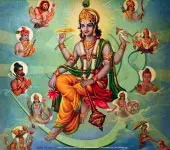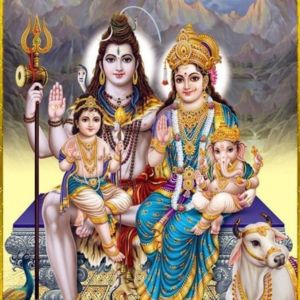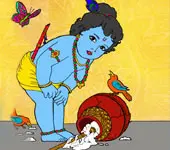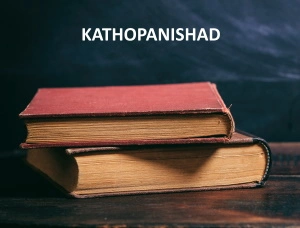Nachiketas Responds To The Offer Of Yamaraja
Transcript
(Click here to read more)
Nachiketas wanted to know from Yamaraja what happens after death. Yamaraja said, don't ask me this question. In lieu of that, ask for whatever else you want. Ask for sons, grandsons, cattle, elephants, horses, gold, land, you decide how long you want to live, I can make you an emperor, enjoy with apsaras, whatever you want I will give it to you. But don't ask for this knowledge. Do you know what is the relevance of this? Knowledge should be given only according to the disciple's eligibility. There are various levels of knowledge, various depths....
Transcript
(Click here)
Nachiketas wanted to know from Yamaraja what happens after death.
Yamaraja said, don't ask me this question.
In lieu of that, ask for whatever else you want.
Ask for sons, grandsons, cattle, elephants, horses, gold, land, you decide how long you want to live, I can make you an emperor, enjoy with apsaras, whatever you want I will give it to you.
But don't ask for this knowledge.
Do you know what is the relevance of this?
Knowledge should be given only according to the disciple's eligibility.
There are various levels of knowledge, various depths of knowledge.
There is a saying, don't give a garland in the hands of a monkey.
What will the monkey do?
It's not going to appreciate its beauty and happily wear it around its neck.
It will simply tear it into pieces and throw it away.
What a disgrace it is.
Our acharyas were very particular - give to someone only as much as he deserves.
Not more.
Let him elevate himself, then give more.
Yamaraja is testing Nachiketas.
Because the knowledge he is asking for in incomprehensible even to the Devas.
Does this young boy deserve it.
What does he want to do with it?
And see how Nachiketas responded to this offer.
श्वोभावा मर्त्यस्य यदन्तकैतत्
सर्वेंद्रियाणां जरयन्ति तेजः ।
अपि सर्वं जीवितमल्पमेव
तवैव वाहास्तव नृत्यगीते ॥ २६॥
These are श्वोभावा - श्वः means tomorrow, that is their nature.
That is the nature of whatever Yamaraja has offered.
Noone knows whether they will be there tomorrow.
Noone knows whether they will be there the very next moment.
And see who is offering these?
Antaka himself.
See the paradox.
Antaka is called Antaka because he is the one who ends everything.
He knows that they are all impermanent.
Nachiketas is calling his bluff.
I want to know what happens after death.
And you want to turn me away by offering all these worthless momentary things.
All of these that offer pleasure to the senses, they themselves are responsible for their wear and tear and push them towards oldness.
They are all vehicles of Yamaraja.
Death travels on these objects of pleasure.
You must have noticed this.
Brahmacharis always look young and fresh.
They don't expose their sensory organs to these objects of pleasure.
That's the reason.
And Nachiketas can live as long as he wants.
What's the use?
If a person is attached to objects of pleasure, enjoyments, then even Brahma's longevity is not sufficient for him.
He will be still unsatisfied.
Nchiketas still continues.
We will see more in the next episode.
Recommended for you
Do you know what has got the highest purificatory power in the world?
 Click here to know more..
Click here to know more..
Mantra For Blessings Of Lord Shiva

तत्पुरुषाय विद्महे महादेवाय धीमहि तन्नो रुद्रः प्रचोदय....
Click here to know more..Akshaya Gopala Kavacham

shreenaarada uvaacha. indraadyamaravargeshu brahmanyatparamaa'dbhutam. akshayam kavacham naama kathayasva mama prabho.....
Click here to know more..
English Topics
Kathopanishad
Click on any topic to open
- 13 What to Ask for if You Meet God
- 12 Nachiketas Responds To The Offer Of Yamaraja
- 11 Yamaraja Tries To Dissuade Nachiketas
- 10 Third Boon Of Nachiketas
- 9 How to attain absolute peace?
- 8 Extra Boon From Yamaraja To Nachiketas
- 7 Yamaraja Teaches Nachiketas About Swargya Agni
- 6 The Second Boon Of Nachiketas
- 5 The First Boon Of Nachiketas
- 4 Which Comes First, Night Or Day?
Please wait while the audio list loads..
30
Ganapathy
Shiva
Hanuman
Devi
Vishnu Sahasranama
Mahabharatam
Practical Wisdom
Yoga Vasishta
Vedas
Rituals
Rare Topics
Devi Mahatmyam
Glory of Venkatesha
Shani Mahatmya
Story of Sri Yantra
Rudram Explained
Atharva Sheersha
Sri Suktam
Kathopanishad
Ramayana
Mystique
Mantra Shastra
Bharat Matha
Bhagavatam
Astrology
Temples
Spiritual books
Purana Stories
Festivals
Sages and Saints
